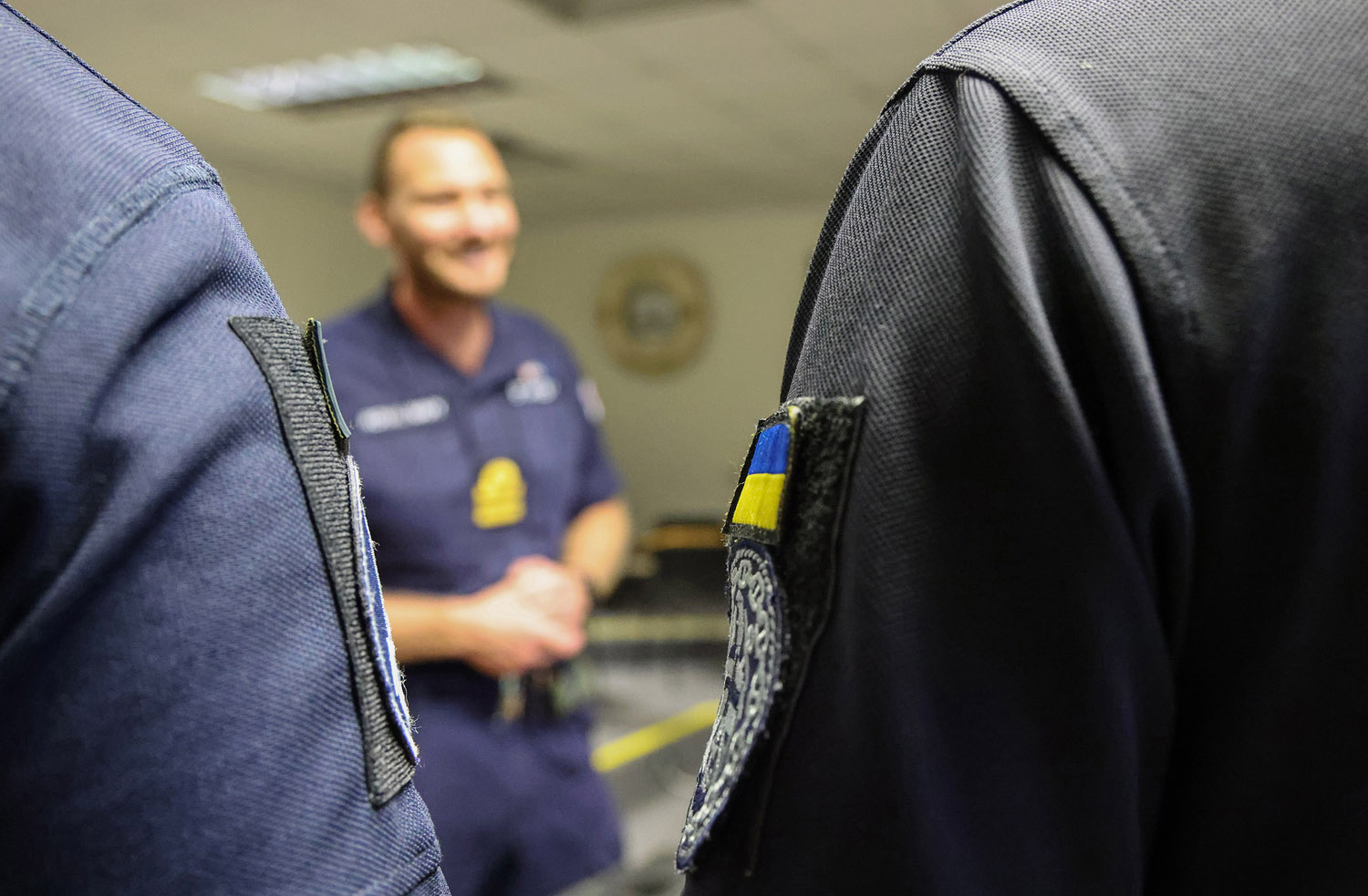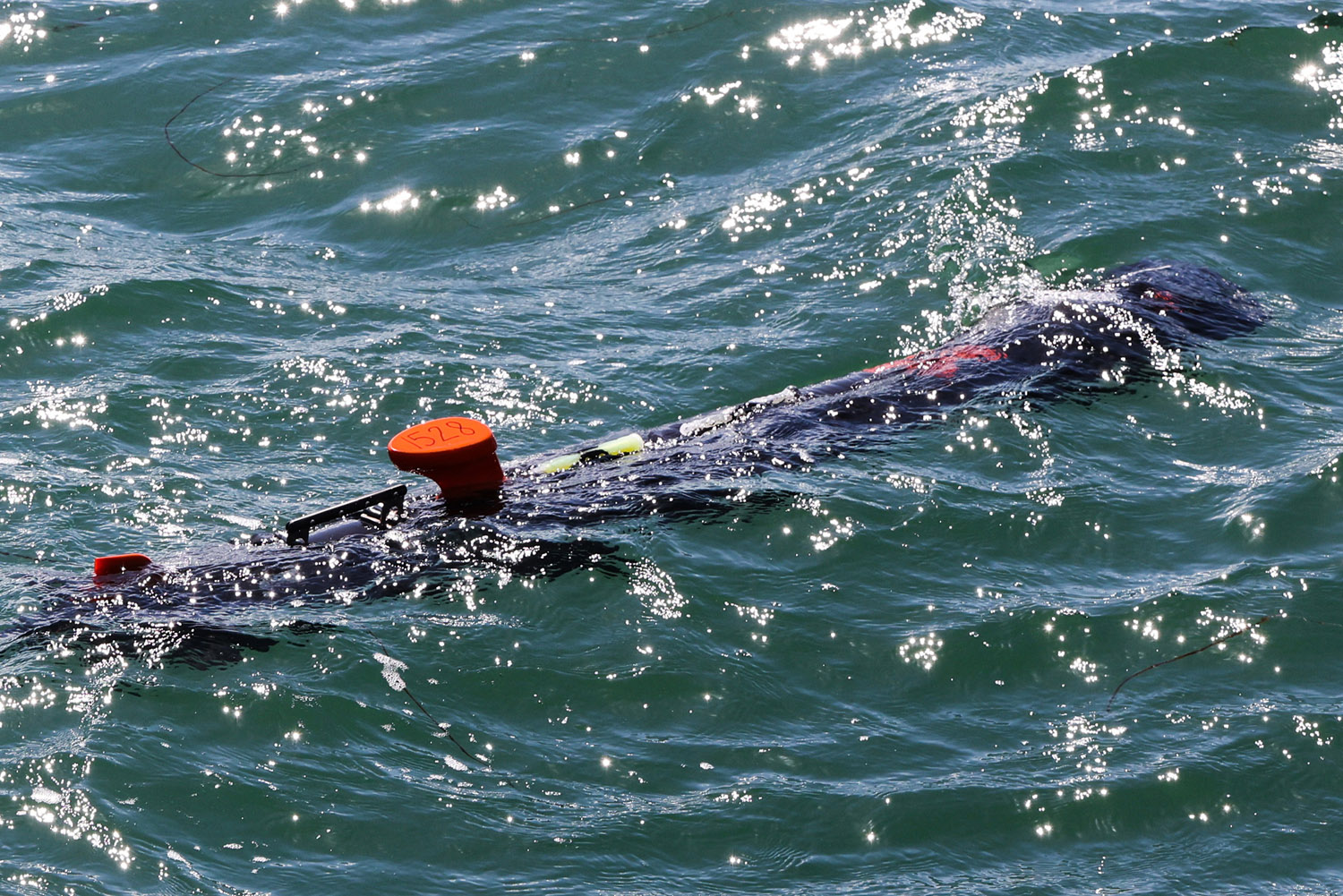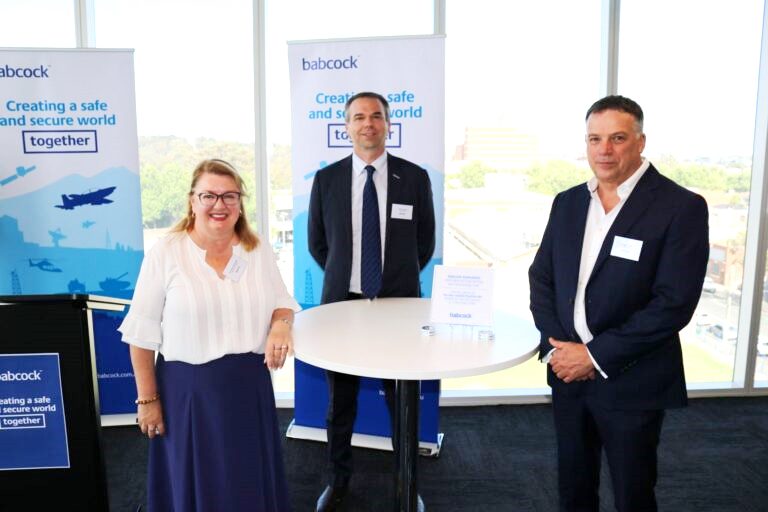UK donating undersea minehunter drones to help Ukraine clear coastline

Images courtesy Royal Navy
Side-by-side with comrades from the US Navy, experts from the Royal Navy's Diving & Threat Exploitation Group are teaching Ukrainians how to operate the devices, which search large areas of seabed for mines and unexploded ordnance without putting the operators in harm’s way.
Dozens of Ukrainian personnel will be taught to use the autonomous minehunting vehicles by the Royal Navy and our US partners over the coming months. The Diving & Threat Exploitation Group is delivering three-week training courses, alongside the US Navy Sixth Fleet.
Six autonomous minehunting vehicles will be sent to the country to help detect Russian mines in the waters off its coast. Three of these will be provided from UK stocks, with a further three to be purchased from industry.

The lightweight autonomous vehicle is designed for use in shallow coastal environments, operating effectively at depths of up to 100 metres to detect, locate and identify mines using an array of sensors so the Ukrainian Navy can destroy them.
Dozens of Ukrainian Navy personnel will be taught to use the drones over the coming months, with the first tranche having already begun their training.
A small number of ships carrying grain have left Ukraine since the UN brokered a deal in July to allow food exports but efforts to get food out of the country continue to be hampered by sea mines left by Russian forces along Ukraine’s coast.
Defence Secretary Ben Wallace said: "Russia’s cynical attempts to hold the world’s food supply to ransom must not be allowed to succeed.
"This vital equipment and training will help Ukraine make their waters safe, helping to smooth the flow of grain to the rest of the world and supporting the Armed Forces of Ukraine as they look to defend their coastline and ports."
The Royal Navy’s Diving & Threat Exploitation Group will conduct the three-week training courses, alongside the US Navy 6th Fleet. Having considerable experience using the equipment already they will conduct training at sea to operate the vessels and interpret the data they send back to identify mock mines.
Admiral Sir Ben Key, First Sea Lord and Chief of the Naval Staff, said: "Through the expert skills being taught here, our Ukrainian allies will be able to clear their own waters of mines. These weapons target shipping indiscriminately, but particularly affect civilian traffic and trade and have had a devastating impact on freedom of navigation in the Black Sea.
"This training is another powerful demonstration of the UK’s ongoing commitment to Ukraine in their fight to defend their country and repel Russian aggression."
Captain Ben Vickery Royal Navy, Captain of Royal Navy Diving and Mine Warfare said: "The Ukrainian personnel have been fantastic and it is a pleasure to be working with them and helping them in their struggle to defend their homeland against the aggression they are currently suffering.
"These incredible, motivated and very professional sailors have thrown themselves into the task and have made incredible progress gaining an excellent level of proficiency.
"I am hugely proud of them, and the Royal Navy Clearance Divers and Mine Warfare specialists delivering the training, standing shoulder to shoulder – stronger together to achieve this vital training mission driven by our shared values and a common bond."
The Royal Navy is also training Ukrainian sailors to operate Sandown Class Minehunter vessels. The Sandown-class Mine Counter Measure Vessels are based in Scotland. The staff and ships of Mine Counter Measures 1 (MCM1) Squadron deploy in the Northern Gulf, conduct NATO exercises with other nations and work around the British Coastline, protecting the UK's shores and clearing the old ordnance that remains as a legacy of previous wars.
“Through the expert skills being taught here, our Ukrainian allies will be able to clear their own waters of mines,” said First Sea Lord Admiral Sir Ben Key.
“These weapons target shipping indiscriminately but particularly affect civilian traffic and trade and have had a devastating impact on freedom of navigation in the Black Sea.
Armed Forces Minister James Heappey and his Ukrainian counterpart Volodymyr Havrylov visited Scotland in July to watch trainees practicing key skills at sea, such as weapon drills and damage control, whilst learning to operate the machinery on the vessels.
The UK is also leading a major international programme to train up to 10,000 Ukrainian volunteer recruits in basic military skills, which Canada, Denmark, Finland, Sweden, Norway, New Zealand, Lithuania and the Netherlands having all announced they will support.












